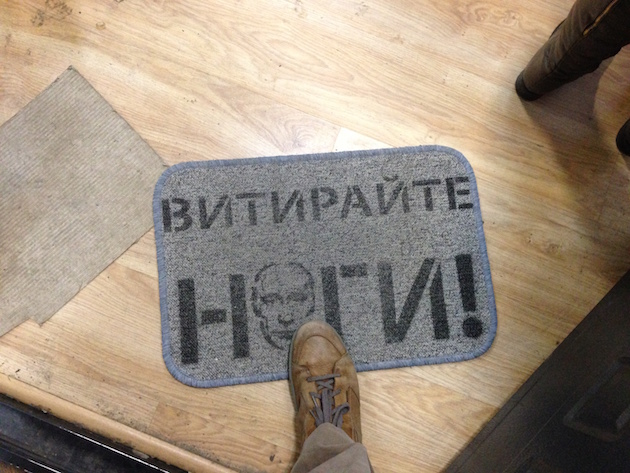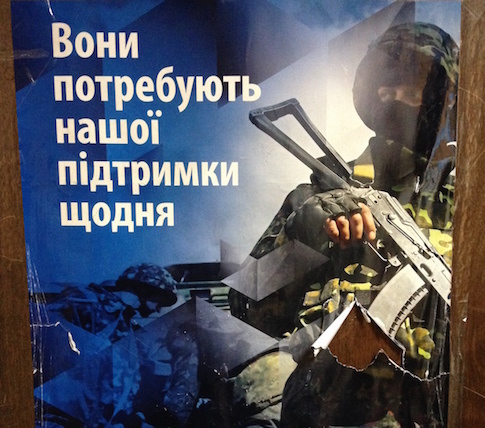KYIV—It is quarter to midnight on the last night of 2014, and the mass of people pouring out of the Metro station near Sophia Square in the Ukrainian capital is so colorfully adorned it is almost unsettling. One of the more jarring aspects of Kyiv, for a first-time visitor like myself, is the strict black/gray monotony of local dress. On this night, though, the streets are filled with blue and yellow.
The display of patriotism is a sight that was practically unheard of before the dramatic, violent protests that began in the winter of 2013-2014 and that led to the ouster of President Victor Yanukovych, the Russian annexation of Crimea, and an armed conflict in the east that has already claimed more than 5,000 lives.
The mood is boisterous despite the sub-freezing temperature and the fact that a substantial portion of the country is an active war zone. Thousands have gathered in Sophia Square, which is just a short walk from the Maidan Nezalezhnosti (Independence Square), the scene of last year’s clashes where monuments stand to the hundreds who died at the hands of riot police. In between cries of "Slava Ukrainyi! / Heroyam Slava!" (Glory to Ukraine! / Glory to the Heroes!) revelers swill champagne and vodka while inviting a certain neighboring strongman to perform all sorts of unspeakable acts upon himself. The past year’s struggles are recounted in a video montage that plays on a big-screen set up in the square. Soon, the Ukrainian president, chocolate baron Petro Poroshenko, will deliver his New Year’s address to the nation, a practice dating back to Soviet times.
"The passing year has been the most difficult in the last seven decades since 1945," Poroshenko says. "A cruel enemy has encroached on our lives, territory, freedom, and independence." Ukrainians, he says, are "a great European people" longing to join the European Union, a dream that seems increasingly remote given the abysmal state of the Ukrainian economy and the apathy of European governments. When midnight strikes, it does so on a giant clock fashioned as an EU flag.
Poroshenko calls for a moment of remembrance for the soldiers and civilians who have lost their lives and for the—hundreds? thousands?—who will perish on the frontlines of a war that won’t be over anytime soon, much less won. (Three weeks after giving this address, Poroshenko will sign a mobilization order for 50,000 additional troops, as more Russian troops and equipment pour into east Ukraine. The airport in Donetsk, a key symbol of Ukrainian resistance, will fall.)
The New Year arrives. The national anthem is sung, its words strangely relevant, as if written for the present day:
The glory and freedom of Ukraine have not died
Luck will still smile on us brother Ukrainians.
Our enemies will die, as the dew does in the sunshine,
And we, too, brothers, will reign in our land.
We’ll lay down our bodies and souls for freedom…
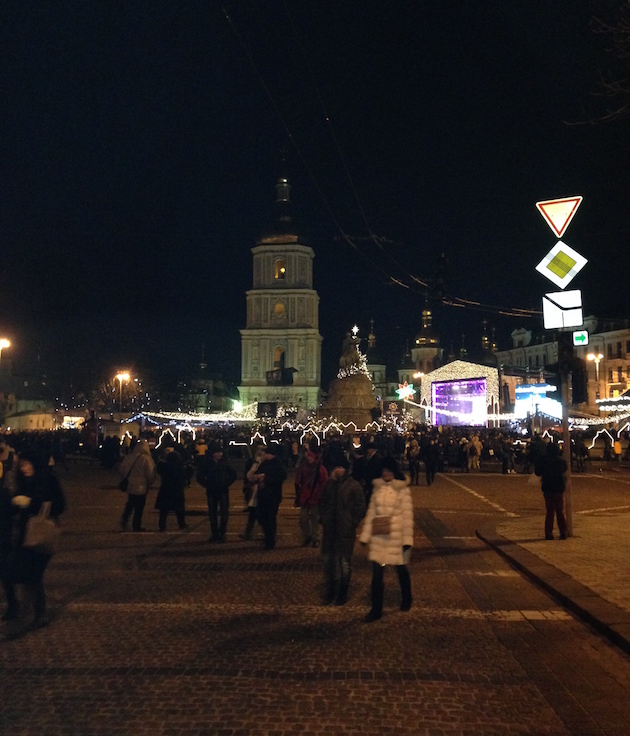
Bodies and souls
Oles Cromplas, an internal affairs officer who oversees an Army battalion stationed north of Donetsk, has returned to Kyiv from the front after a grueling drive that required an extra day to complete because his car was damaged. When I ask if it was damaged in the fighting there, he laughs. "No, it was because of the shitty roads," he says. The roads here are a constant source of frustration and jaded amusement, much like the Washington, D.C., Metro system. In fact, driving on them can often feel like riding one of our capital's stalled escalators.
Oles’s men are digging in for a long winter. "We can see [the enemy], but we have nothing to do," he says. "It’s too cold." The situation is far from ideal, but morale is holding up. "It’s always okay, thank God."
In western Ukraine, notwithstanding the glut of anti-Putin paraphernalia in the souvenir shops, it is easy for visitors to forget they are in a country that is being invaded. Yet practically every Ukrainian I encounter knows someone on the eastern front, which can be reached in about a day’s drive so long as your car doesn’t succumb to the shitty roads.
Others have friends or families still living in the east, where fighting has become an aspect of everyday life. Shortly before the festivities begin on New Year’s Eve, my Ukrainian host, Oleg, received a call from his parents in Luhansk. They’d lost power and could hear scattered gunfire in the distance. Oleg is nonchalant when, hours later, I ask him if he’s heard any updates on the situation. "I assume they’re fine," he says. "But I don’t know. I haven’t heard from them."
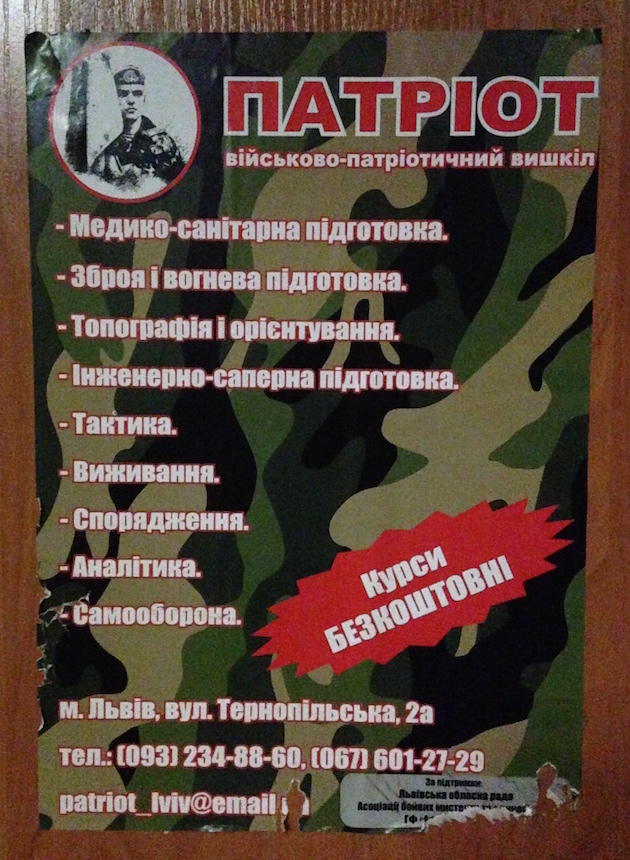
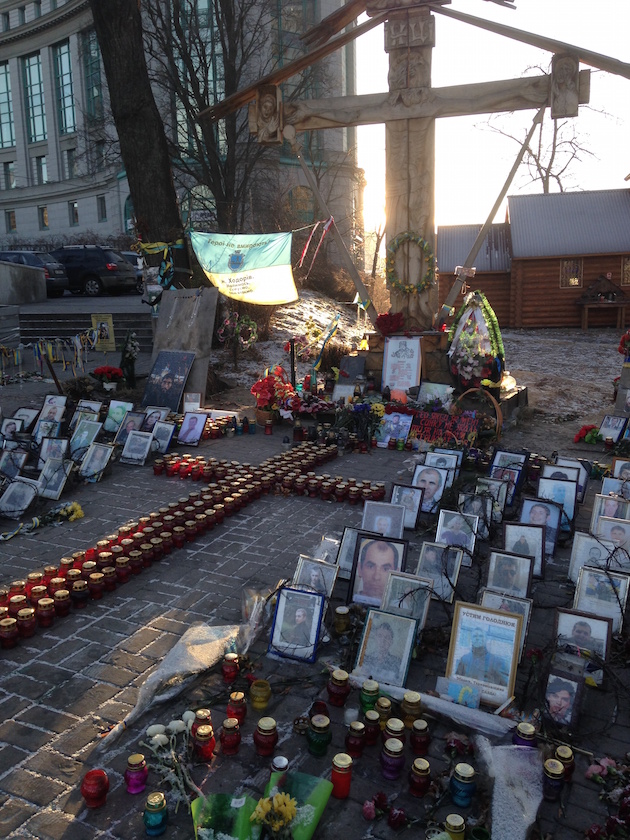

… Our persistence, our sincere toil will prove right.
Still our freedom's loud song will spread throughout Ukraine.
It will reflect upon the Carpathians, will sound through the steppes,
And Ukraine's glory will arise among the people.
Among the people
A major reason Oles, the internal affairs officer, is upbeat about the condition of his men is the extraordinary efforts of Ukrainian volunteers. Among his first stops in Kyiv is the headquarters of the National People’s Homefront (NPH), one of the largest volunteer organizations in the country. "My friends are here," he says. "Also, the traffic sucks, and I can’t go anywhere right now."
Though officially established in August 2014, the group has been around since February, when Russian forces invaded Crimea and surrounded the Ukrainian military bases there. The group’s founder, George Tuka, spearheaded a campaign to help the Ukrainian soldiers under siege to upload credit on their cell phones so they could stay in contact with their loved ones. Shortly thereafter, Tuka and his fellow volunteers organized transportation for soldiers to return home after Russia annexed Crimea. When the war started, they decided to expand their operation. NPH currently has a full-time staff of about 40 people and volunteers who are "too many to count."
"We’ve never had to deal with coffins, thank God," Tuka tells me in his office at the NPH headquarters in Kyiv. "But we have delivered body bags." His group has bought weapons, repaired tanks, and delivered food and medical supplies, along with all sorts of equipment including generators and other homemade heating devices, tents, sleeping bags, night vision goggles, and, shockingly enough, even uniforms. Many of the Ukrainians fighting to defend their country are doing so in old fatigues donated from the United States, Great Britain, Germany, Thailand, and dozens of other countries around the world. Soldiers are more careful now about replacing foreign flags with Ukrainian ones, after Russian propaganda seized on them as proof of foreign government involvement. The truth, as it turns out—domestic government dysfunction—is almost harder to believe.
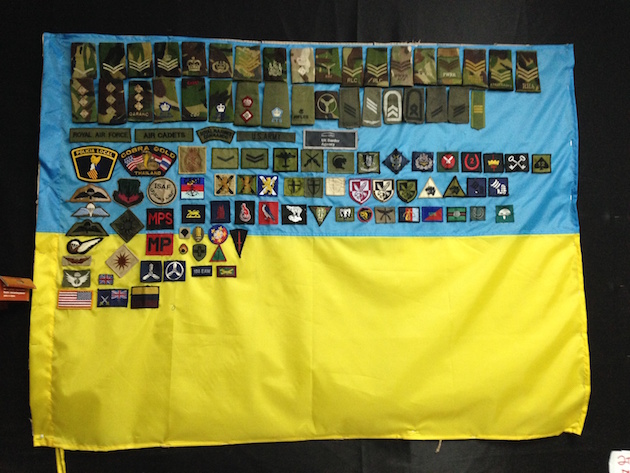
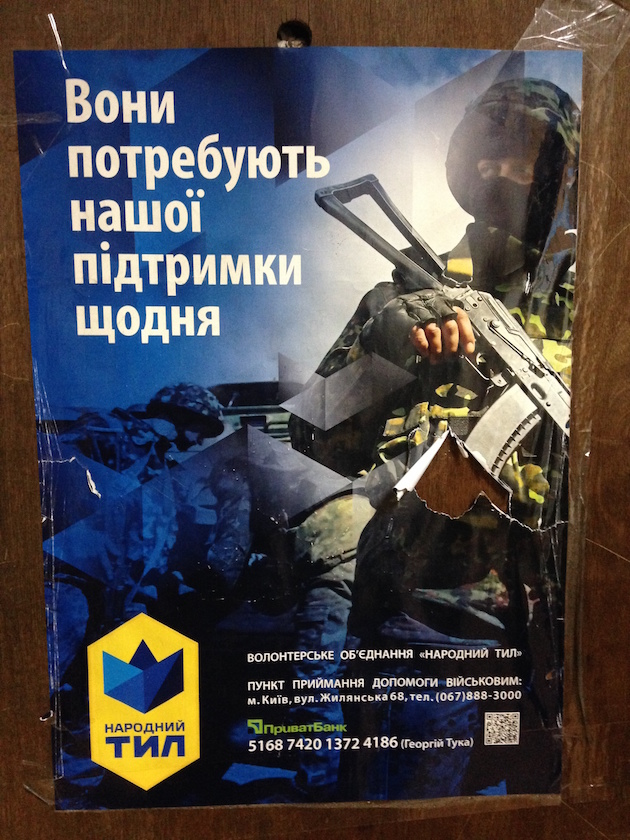
"What you see is the reaction of a very creative and passionate Ukrainian society to the laziness of our government," Tuka says. "It’s like the government doesn’t realize there is a war going on in our country. Our only message to them is: ‘we don’t need your help, just don’t stand in our way.’" That is easier said than done, as the group continues to face government-imposed challenges getting equipment, much of which is either purchased or donated from abroad, through customs, and transported to the front lines. But at least they are able to fend off some of the rank corruption plaguing the Ukrainian government’s administration of foreign financial and material aid, a depressingly large amount of which never seems to reach its intended destination.
PNH recently helped acquire 70 specially armored SUVs for use in the "anti-terrorist operation" (ATO), as the conflict is often described. They seek out British-made vehicles with steering columns on the right-hand side (in Ukraine, people drive on the left) because, as volunteer Tanya Ostrogalov explains, "it helps save lives."
Ostrogalov was living abroad with her husband in Lithuania when the protests broke out in Kyiv, but returned soon after. He enlisted in the military; she became a full-time volunteer. "We felt we couldn’t stay away given the situation," she says as we tour the NPH supply depot behind the office headquarters. It is the largest of three warehouses the group maintains in the capital. Ostrogalov helps to oversee "one of the most efficient logistics operations," managing the massive and meticulously catalogued inventory and coordinating the delivery of equipment to the front. They even run a fact-checking operation of sorts to weed out grifters and scam artists and to ensure that requests for help are genuine.
If the Ukrainian government could operate with a fraction of the efficiency, dedication, and competence of this grassroots army of volunteers, the country would not be such a basket case.
"For the moment, we don’t feel like it’s such a desperate situation," Ostrogalov says. "It’s much better than it used to be in the beginning, when we didn’t know what to do. Now we have our connections, we know where to buy from, how to deliver, and how to check that everything is going to the right place. Maybe something good will come out of it, but for now we do what we can."
One example: In September, the NPH launched Wings of the National Homefront, a training program for drone pilots. These are merely surveillance drones, some of which are homemade, but they can play a vital role in the reconnaissance of enemy positions. "Every week we have a group of student about six to ten people come directly from the Army and we teach them how to operate drones," Ostrogalov says. "Then they go back to the front with drones supplied by volunteer organizations. It has saved a lot of lives." To date, the program has taught more than 100 pilots and supplied at least 15 drones.
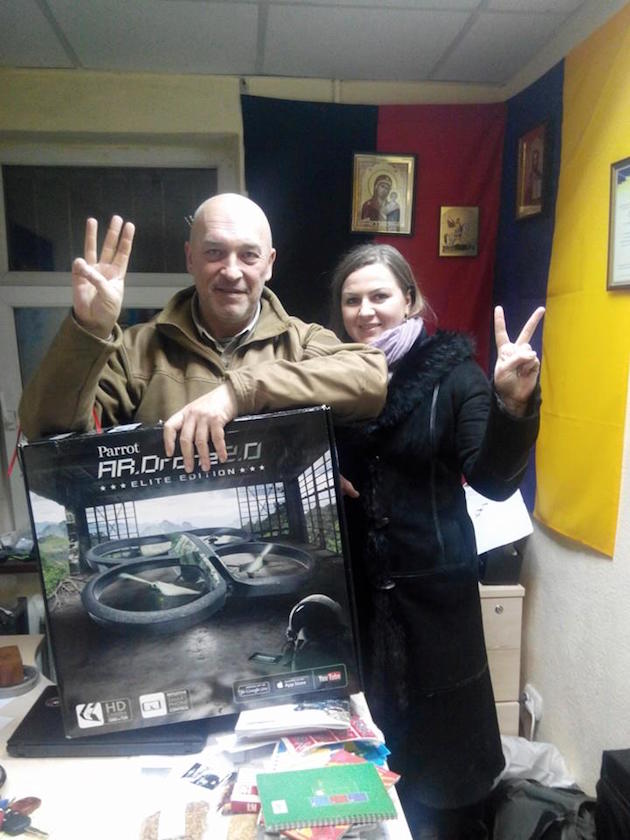
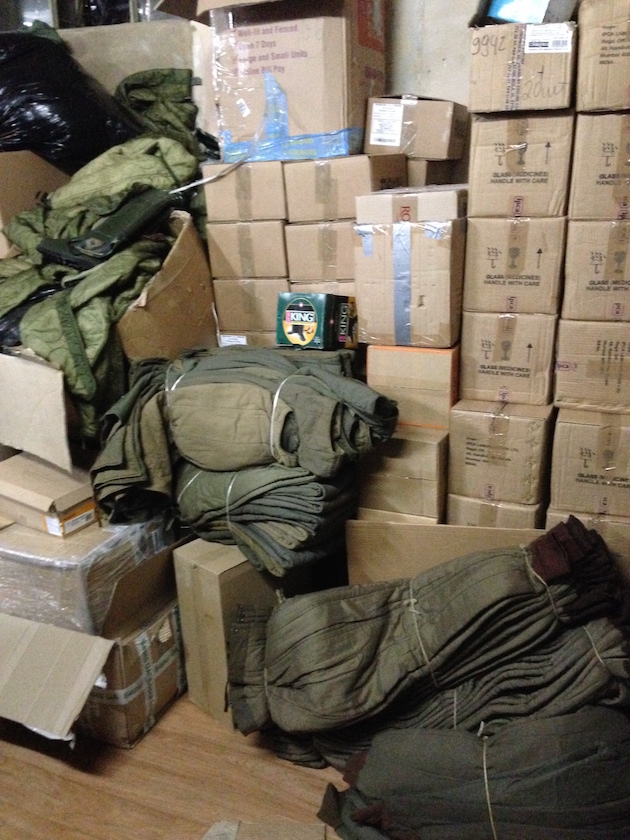
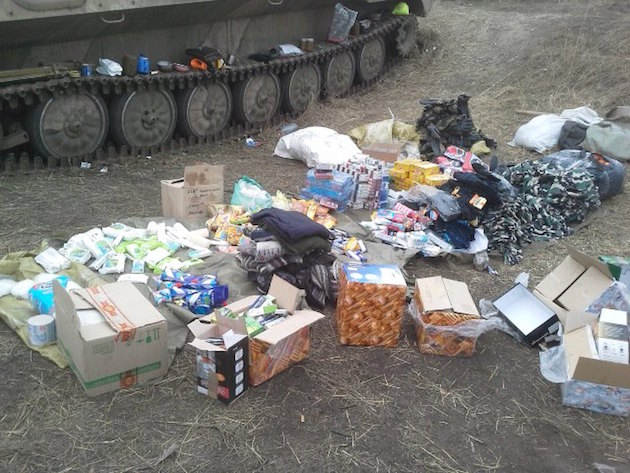
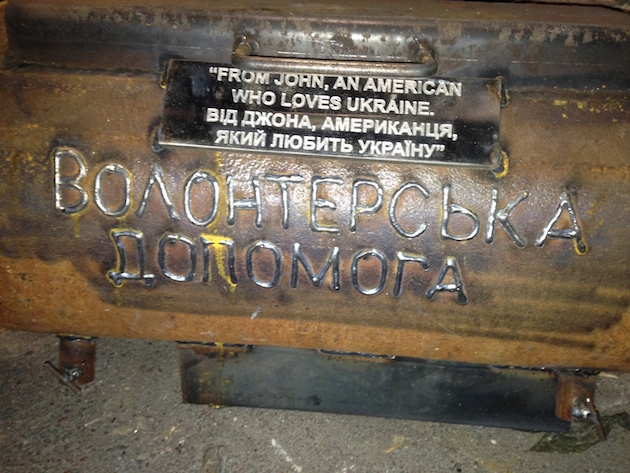
"We will struggle. We will win."
The only reason Ukraine does not have nuclear weapons, I am told while sitting with a group of locals at a café in Lviv, is because the government hasn’t asked volunteers to get them yet. (The reality, of course, is that Ukraine agreed to surrender its nuclear arsenal in 1994 so long as the United States and Russia agreed to respect its territorial sovereignty. But so much for that.)
If there is anyone who might be able to track down a spare nuclear warhead, it’s Oksana Labunska. She took a leave of absence from her job as a restaurant manager in Kyiv in order to volunteer full-time, and is the Ukrainian equivalent of Morgan Freeman’s character in The Shawshank Redemption. Over the course of her work with the National People's Homefront and a host of other volunteer organizations, she has been known to locate certain things from time to time.
Several weeks ago, Labunska was preparing chicken stock in her apartment when she got a call from a squad of soldiers from Odessa serving in the east. They needed help. Four of their tank engines had frozen over and wouldn’t start. Labunska made some calls, scrounged up several generators and some handmade heating devices, coordinated transportation to the front, and the tanks were up and running again in less than four days. When another group of soldiers were given some much needed time off, but the government neglected to provide them with transportation to return home to their families, Labunska and a group of volunteers pulled together enough money to pay for a bus. All in a days work, she tells me. "One time I got call saying ‘Oksana, we need 28 coffins.’ So we got them. I don’t know what people are going to ask for next. Every day is a surprise."
The groups she volunteers with handle an array of tasks that are at once extraordinary and yet such seemingly basic elements of a semi-competent government in a time of war as to make one torn between hope and despair for the Ukrainian people. "It is winter now, but our soldiers not freezing, because we are dressing them," Lubanska says. "The government only provided them with summer clothes when the war started." Volunteers are also distributing makeshift dog tags (with name and blood type, etc.) to soldiers who never received official ones from the military. As a result, they have also been dragging bodies off the battlefield and working to identify them. Then they help to bury them.
"In Ukraine, everyone who understands there is a war here is a volunteer," Labunska says. "When you understand that, you try to do whatever you can to help. Sometimes I don’t think our own government understands."
On the homefront, Labunska and other volunteers work with lawyers to secure the necessary documentation for soldiers, living and dead, to ensure that they, or their families, receive the government benefits they are rightfully owed. This can be an especially tricky process at times given that some unknown thousands of soldiers are themselves volunteers who came to the frontlines without formally joining the Ukrainian army.
One of these volunteers, 24-year-old Maxim Klokun, lost his leg during a battle with separatist forces in August. But because he was not officially recognized as a soldier, he was not eligible to receive a prosthetic device from the government. So Lubanksa arranged a to house call with Leszek Kloszewski, a Polish doctor and ardent supporter of Ukraine who specializes in prosthetics. They traveled to Poland together, and Maksym was walking again in no time.
There are many others like him, Klokun tells me. "The people here are waging war on their own, without the government," he says. "Why did I decide to volunteer? Because war is a terrible thing, and I didn't want it to come to my front door. Because I'm a patriot, and I don't think anybody should be allowed to take our land." Klokun still hasn't received any benefits or recognition for his service.
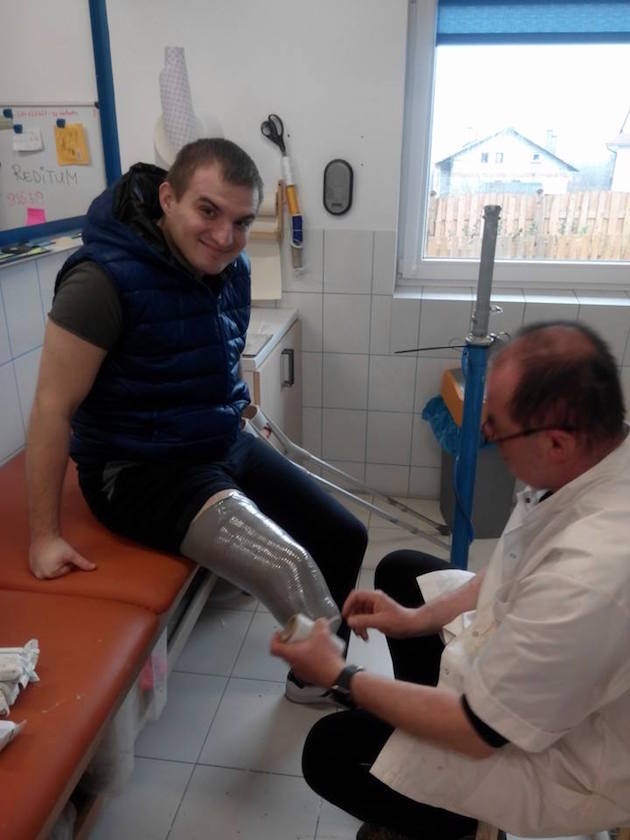
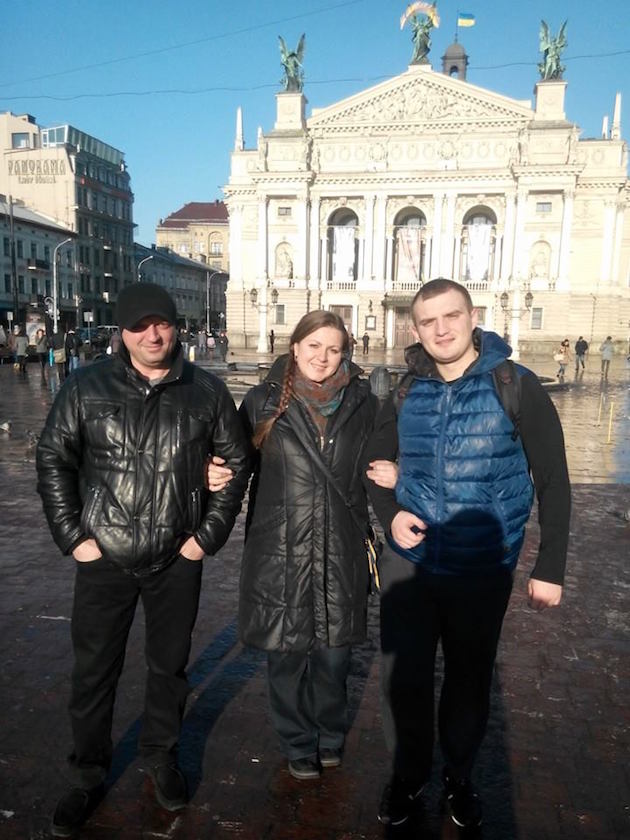
Lubanska won’t be a full-time volunteer much longer. She plans go to back work. She could use the break. She knows that many of the soldiers she keeps in touch with could use a break as well, but aren’t so fortunate. "They need rest," she says. "Some of them are tired of the war. Not all of them were ready to fight, ready to kill."
Back at the People’s National Homefront headquarters, it is growing dark as George Tuka returns to office, the door of which is emblazoned with one of the popular Ukrainian slogans urging Vladimir Putin to defile himself. Tuka's phone has been ringing, as it often does, typically with updates and additional requests from the front. I pop in to say a quick goodbye, to thank him for his time, and to wish him luck.
"It’s okay," he says, speaking in English for the first time. "We will struggle. We will win."
